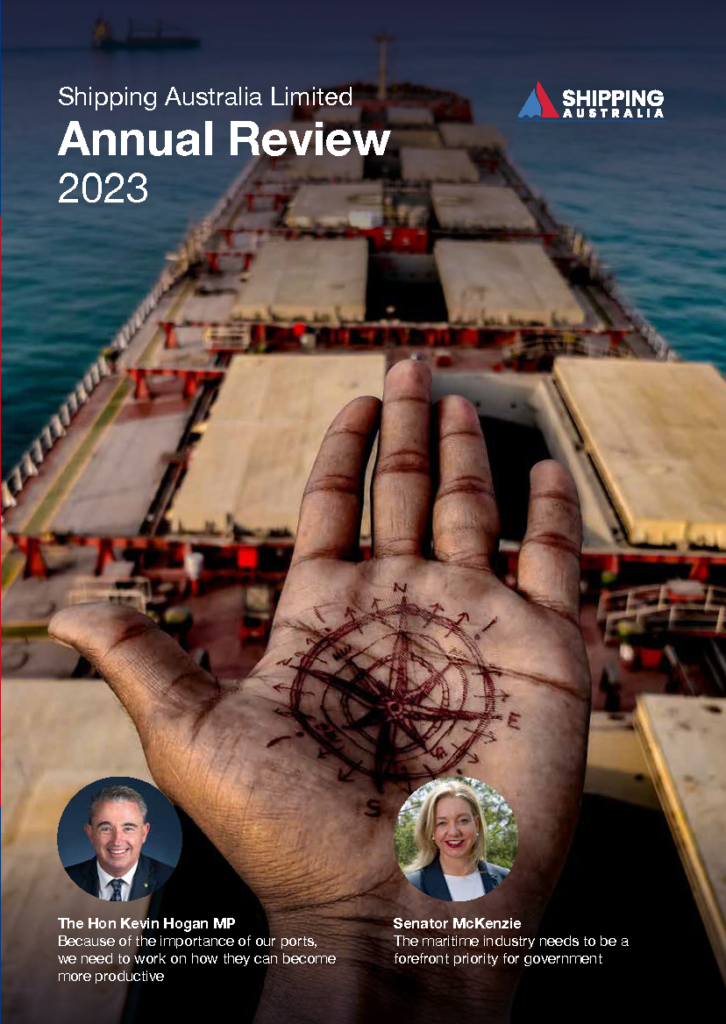
By the International Maritime Organization
The IMO GHG Working Group has finalized guidelines to support implementation of carbon intensity measures and has agreed to further develop a “basket of candidate mid-term measures” including technical and carbon-pricing elements
Draft guidelines to support implementation of ship carbon intensity measures coming into effect in 2023 have been finalized by an International Maritime Organization (IMO) Working Group.
The 12th session of the Intersessional Working Group on Reduction of GHG Emissions from Ships (ISWG-GHG 12), meeting from 16 to 20 May, also discussed a number of concrete proposals for mid-term measures and associated impact assessments, in the context of IMO’s Work plan on the development mid-term GHG reduction measures.
Following very constructive discussions, the Working Group agreed to advance towards the further development of a “basket of candidate mid-term measures” – integrating both technical (for example, a GHG fuel standard and/or enhancement of IMO’s carbon intensity measures) and carbon pricing (for example, through a market-based measure) elements.
The session, held remotely, was attended by more than 430 participants from some 80 Member States, as well as from NGOs in consultative status with IMO.
The ISWG-GHG 12 report will be considered by MEPC 78. The ISWG-GHG 11 session report will also be submitted to MEPC 78, including an update on its work to develop marine fuel lifecycle GHG assessment guidelines, which would cover Well-to-Wake, including Well-to-Tank and Tank-to-Wake emission values, and how to conduct future assessments of possible impacts on States of IMO’s basket of candidate mid-term measures.
Draft guidelines/guidance to support implementation of IMO’s carbon intensity reduction measures approved
The short-term measure to reduce carbon intensity was adopted as amendments to MARPOL Annex VI in June 2021 and includes the Energy Efficiency Existing Ship Index (EEXI); annual operational carbon intensity indicator (CII) rating and an enhanced Ship Energy Efficiency Management Plan (SEEMP). The new and updated guidelines will supplement (or replace) guidelines already adopted to support the implementation of the EEXI and CII regulations. These guidelines provide additional clarity to Administrations implementing the regulations and to the shipping industry.
Based on the outcome of a Correspondence Group on Carbon Intensity reduction attended by more than 300 experts in 2021 and 2022, the Working Group finalized the following guidelines/guidance, for adoption/approval by the Marine Environment Protection Committee (MEPC 78, 6 to 10 June 2022):
- 2022 Guidelines for the development of a Ship Energy Efficiency Management Plan (SEEMP)
- Guidelines for the verification and company audits by the Administration of Part III of the Ship Energy Efficiency Management Plan (SEEMP)
- 2022 Guidelines for Administration verification of ship fuel oil consumption data and operational carbon intensity
- 2022 Guidelines for the development and management of the IMO Ship Fuel Oil Consumption Database
- Guidance for the submission of data to the IMO data collection system from a State not Party to MARPOL Annex VI
- 2022 Guidelines on the method of calculation of the attained Energy Efficiency Existing Ship Index (EEXI)
- 2022 Guidelines on survey and certification of the attained Energy Efficiency Existing Ship Index (EEXI)
- Guidance on methods, procedures and verification of in-service performance measurements for EEXI calculation
- 2022 Interim Guidelines on Correction Factors and Voyage Adjustments for CII Calculations (CII Guidelines, G5)
- 2022 Guidelines on Operational Carbon Intensity Indicators and the Calculation Methods (CII Guidelines, G1)
- 2022 Guidelines on the Reference Lines for use with Operation Carbon Intensity Indicators (CII Reference Lines Guidelines, G2)
- 2022 Guidelines on the Operational Carbon Intensity Rating of Ships (CII Rating Guidelines, G4)
The Working Group also discussed draft amendments to the Procedures for port State control, 2021 (resolution A.1155(32)), related to enforcement of the short-term GHG reduction measure by Port State Control authorities. The Group agreed to refer the draft amendments prepared by the Correspondence Group to the Sub-Committee on Implementation of IMO Instruments (III 8, 25 to 29 July) for further consideration. In particular, the III Sub-Committee is requested to consider the issue of what is regarded as a detainable deficiency in relation to the CII rating and to advise MEPC 79 accordingly.
Proposals for mid- and long-term measures – moving to phase II of the Work plan on the development of mid-term measures
The Working Group considered in detail various proposals for mid-term measures and welcomed the proposals, their initial impact assessments, and other relevant documents (22 submissions to the Working Group as well as submissions referred from the MEPC).
The various proposals received support from several delegations, and the Group recognized that all these proposals contained valuable elements.
The Working Group supported, in general, the further development of a “basket of candidate mid-term measures”, integrating both various technical and carbon pricing elements while recognizing the necessary flexibility.
In accordance with Phase II of the Work plan, the Group agreed to continue its work by means of assessing, in particular, the (1) feasibility, (2) effectiveness to deliver the long-term levels of ambition and (3) potential impacts on States, of the “basket of candidate mid-term measures”.
The Group noted that there would be a need for additional information to support the development of the basket of candidate measures during Phase II. The Group also invited the proponents of the different candidate measures to work together intersessionnally with a view to exploring how different elements of these proposals could be combined within the “basket”, and invited Member States and international organizations to submit new documents to a future session, including refined proposals to that purpose.
The work plan for development of mid- and long-term measures, including economic incentivization measures (market-based measures), envisages three phases: Phase I – Collation and initial consideration of proposals; Phase II – Assessment and selection of measures(s) to further develop; Phase III – Development of (a) measure(s) to be finalized. (Read more on the work plan here).
Further work
The Working Group developed proposed draft terms of reference for the intersessional group to meet between the MEPC 78 and MEPC 79 sessions. This would include further work on marine fuel life cycle GHG assessment; impact assessment of measures; revision of the ship fuel oil consumption Data Collection System (DCS); and further consideration of a basket of candidate mid-term measures in the context of Phase II of the Work plan for the development of mid- and long-term measures (mid- and long-term includes market-based measures). MEPC 78 may decide to add other GHG-related matters to the agenda of the Working Group.
The workload of the group was discussed. The Working Group agreed on the need to progress efficiently on the many tasks related to the reduction of GHG emissions from international shipping. The Group agreed to work together to find a joint solution on whether to continue working under existing working arrangements or to adjust the working arrangements; and invited Member States, international organizations and the Secretariat to submit relevant documents on this matter.


